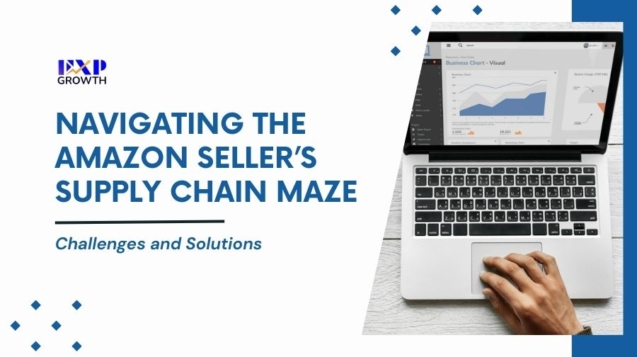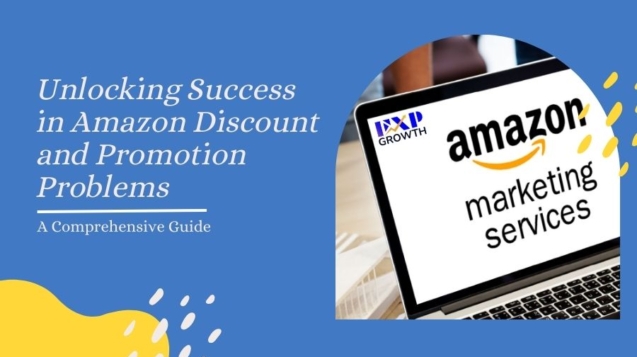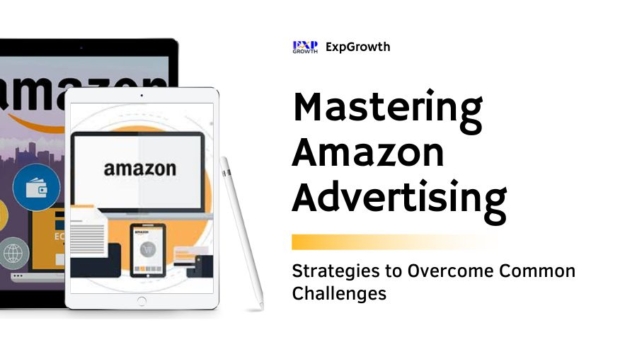One of the most well-liked forms of online advertising is PPC. Companies may get their adverts in front of interested individuals by developing ads and utilizing efficient PPC Campaign Management. At least, that is how it should operate.
When used correctly, PPC advertisements can be very effective. You’ve come to the right page if you’ve wanted to find out more about PPC marketing or want to enhance the outcomes your PPC campaigns have produced so far.
PPC doesn’t have to be complicated. To help you develop your skills, we’ll break down what it takes to make a successful pay-per-click ad campaign in this post.
Developing and implementing a good PPC campaign requires controlling numerous moving components simultaneously. This PPC guide will make reaching your goals easy, whether handling PPC for the first time or searching for new recommendations. In the following paragraphs, learn how to set up, optimize, and manage your PPC campaigns to enhance website traffic and conversion rates.
PPC Campaign Management: What Is It?
You can construct a campaign that stays within your marketing budget by limiting your daily, weekly, and monthly ad spending. PPC, or pay-per-click, refers to the practice of charging money each time one of your advertisements is clicked. PPC advertising is billed according to your bids and the number of clicks you receive, unlike other ads that may ask you to pay for a predetermined number of impressions (the number of times your ads appear).
Essentially, you decide how much you’re willing to pay for each person who clicks on an advertisement and visits your website. Additionally, you select words or phrases you want people to use when searching for your website.
PPC advertising campaigns effectively bring new visitors to your website without having to earn them naturally. They enable you to advertise to your target market in the internet spaces where they congregate.
Prospective customers are drawn to businesses with a high Google ranking as they start looking into vendors of the goods they need. You can reach the top of the search results using PPC advertisements, even ahead of organic search results. PPC also aids in establishing your firm as an authority in your industry, boosting customer confidence, and establishing your brand.
The goal of PPC management is to maximize the effectiveness of your PPC ads. This entails ensuring they are correctly configured, optimizing them, and modifying your advertisements.
You must continuously assess what is working and what isn’t, conduct tests to find new opportunities, and make adjustments if necessary to achieve the most excellent outcomes. This will guarantee that your marketing dollars are not wasted on tactics that don’t produce the best return on investment.
What are Google Ads?
Due to Google’s continued dominance as the top search engine in the world, Google Ads continues to be the most often used alternative for PPC management campaigns. PPC campaigns can also run on Bing, Instagram, and Facebook.
You have the option to generate advertising through Google Ads, which will primarily show up at the top of search engine results on their search engine. Your advertisement can appear when someone searches for the terms you bid on.
Since Google has so many advertisers, there may be fierce competition for keywords depending on your sector. When deciding which ads to display, Google considers the quantity of a bid, the appropriateness of an ad campaign, and the relevancy of the keywords. The “ad rank” that is made up of these two elements can be divided into the two metrics below:
-
Your CPC Bid
Your maximum spending limit for each time a user clicks on your link is your cost-per-click bid.
The PPC procedure resembles an auction in that successful marketers reach prospects based on set advertising rates within their price ranges.
-
Your quality rating
This comprises:
- How well your landing page performs
- Relevance of your advertisement
- Your percentage of clicks
You can increase your ad’s likelihood of appearing when users search for your goods or services by raising your bid or quality score.
How to Run an Effective PPC Campaign?
Ready to begin managing your PPC campaign? To have a good PPC campaign, you must do a few things exactly as instructed in this PPC strategy section.
-
Choose the Correct Keywords
Checking the demand from your customers is the first stage. PPC will only be effective if people seek your service or goods. You must ensure sufficient searches for the service you intend to provide.
Utilizing the Google Keyword Planner will help you do this. Utilizing this tool is very similar to using a thesaurus. Please list the words and phrases you will receive more pertinent and related terms from the tool.
You’ll also learn the following:
- How many people use those search terms?
- How fiercely competitive Google Ads are.
- How much each term would cost you to use.
In light of this, you must respond to the following three questions:
- What is the frequency of searches for this keyword? Do they enter it into Google?
- Are those people inclined to buy from you if they find you through that keyword?
- If you employ that keyword, can you afford to?
List the probable keywords you have that fit the requirements above.
-
Observe your rivals
Businesses that have previously optimized their PPC campaigns can be found in most industries. This indicates that they have already researched and know which landing pages, advertisements, and keywords would be effective in your niche.
Using a program called KeywordSpy, you can learn this vital information. It’s a service that costs money, but it allows you to conduct searches to find out how your rivals are using PPC and further investigate the keywords you’re considering employing in your ads. With the help of this technology, you can obtain crucial previous advertising data that your rivals would prefer to keep to themselves.
Although this will take more time, you may also perform searches using your keywords to observe who is appearing, what their advertisements say, and where they go.
-
Increase Your Copy
A solid unique selling proposition is essential when investing in PPC campaign management (USP). What sets you apart from the competition is your USP. It benefits potential customers by picking your company over your rivals.
This entails concentrating on your key competencies and identifying how your business differs from others in its field. But you must also clearly explain this to the person searching.
When you put forth a lot of effort to produce the most excellent copy possible, you:
Bring in qualified leads that will pick your advertisement above your rivals.
Only click through on qualified prospects who are likely to make a purchase and would cost you money.
For someone to click on your advertisement, quality writing should explain who you are, what makes you unique, and why. Your call to action should be unambiguous and may include a special offer or other incentives to encourage them to take the next step.
-
Maintain a Conversions Log
Thanks to conversion tracking, you can determine how many sales your PPC campaign brings in. These analytics allow you to identify the advertising and keywords that are most effective at driving sales.
Under “Tools and Analysis” in your Ads account, you may locate the conversion tracking code. Then, to properly account for every purchase completed due to your PPC ads, you may add that code to your invoice or thank you page. This will be useful for assessing and improving the performance of your campaigns.
Campaign Optimization
Most of the previous work can be finished at the start of your campaign. But PPC management also entails modifying and improving your efforts over time.
The key here is to stop doing the things that don’t work and put more effort into the things that do.
Here are some things to think about when you manage your PPC campaign:
-
Pruning
Pruning your keywords entails removing the keywords preventing you from moving forward, just like pruning a landscape involves removing overgrown and dead stems and branches.
These consist of the following:
- Clicks from keywords that aren’t leading to conversions
- Low-Quality Keywords (begin with three or fewer).
- Keyword conversion rates could be more profitable.
This data is accessible in your Ads account’s “Search keywords” subtab.
You can spend more money on the keywords that are profitable by eliminating the ones that aren’t. Of course, you can always do more keyword research and test drives to see how they work for you.
-
Optimizing bids
You can use bid optimization in PPC management to identify the keyword bids that will result in the most profitable conversions.
To do this, figure out how much you can spend on each convert and still turn a profit. This relies on several factors, including:
- Your lifetime value of a customer
- Your company
- Your definition of a conversion (phone call, sale, demo, etc.)
The conversion rate for each keyword may then be determined. Finally, figure out how much you can comfortably spend on each keyword.
Switching your keywords between campaigns is an option when more data becomes available. Thus, you can test the keywords that have yet to show to be profitable or have low conversion rates. You should test your landing pages, copy, and offer.
For instance, if you are receiving a lot of clicks but no conversions, check to see that your copy is clear and appealing to the right audience and that your landing page is exciting and designed to encourage potential customers to take the next step and either make a purchase or book an appointment.
-
Targeting of campaigns
If you’re serious about managing PPC campaigns, you should take the following into account:
-
Devices
Your advertisements’ effectiveness will differ significantly depending on your customers’ devices. Prospects who use mobile devices typically convert less than those who use desktops.
You will only have a complete picture of your data, which combines information from both devices.
It’s possible that your campaign performs admirably on desktops but poorly on mobile devices. Your advertising might be more successful if you stopped focusing on mobile consumers. Similarly, you can discover that particular terms or offers have greater appeal to users of mobile devices. You will only know once you separate your data and track outcomes by device type.
-
Geography
Geographic targeting is another aspect of PPC management. This entails examining your data and evaluating performance according to location.
With geo-targeting, you can monitor where your resources are going and which areas are the most lucrative. To increase conversions, you may also make adverts tailored to particular regions. This enables you to improve campaigns for locations that are converting while excluding those that aren’t.
You might discover, for instance, that targeting zip codes that include the city center during business hours enhances your orders but that targeting more rural locations during the same hours results in campaigns with low conversion rates.
-
Time
Review the effectiveness of your campaigns according to the day of the week and the hour of the day.
Different campaigns may perform better on particular days of the week and at specific hours of the day. You can modify your bids based on the day and time under the “Settings” page to ensure that you only place bids during the times and days that are most profitable for your campaigns. This is especially helpful for services with a limited lifespan.
For instance, if you provide food delivery services, there is no need to squander advertising dollars when you are closed because no one can make a purchase then.
Do You Need Help Managing Your PPC Campaign?
As you can see, managing an active PPC campaign requires a lot of effort. Businesses can save their marketing dollars while generating few quality leads.
While it might appear simple to start an advertising campaign, it takes a lot of work to put it up correctly, monitor it, and optimize it. And with so much already going on in their organizations, many companies need more time to focus on their PPC campaigns and go through the learning curve.
Take the next step and use PPC ads to increase traffic to your website. Contact us immediately to get PPC management help/services, and we can discuss evaluating your current campaign or get you started on a new one.












